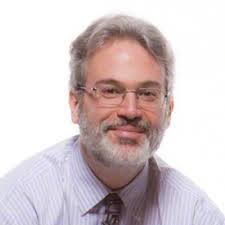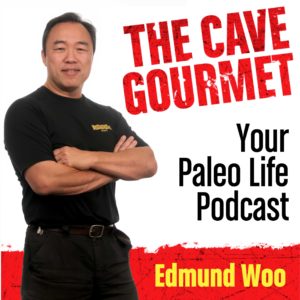 Dr. Glenn Livingston is a veteran psychologist and longtime CEO of a multi-million dollar consulting firm which has serviced over 500 food-industry clients. Disillusioned by what traditional psychology had to offer to overweight or food-obsessed individuals, Dr. Livingston spent decades researching the nature of binging and over-eating via work with his patients and a self-funded research program with over 40,000 participants. He is the author of Never Binge Again: Reprogram Yourself to Think Like a Permanently Thin Person.
Dr. Glenn Livingston is a veteran psychologist and longtime CEO of a multi-million dollar consulting firm which has serviced over 500 food-industry clients. Disillusioned by what traditional psychology had to offer to overweight or food-obsessed individuals, Dr. Livingston spent decades researching the nature of binging and over-eating via work with his patients and a self-funded research program with over 40,000 participants. He is the author of Never Binge Again: Reprogram Yourself to Think Like a Permanently Thin Person.
2:24
How did your background lead you to write Never Binge Again?
I’m a trained psychologist and I had an eating problem—I was an exercise bulimic. I discovered in high school that if I worked out a lot I could just eat all day long and stay thin. I would literally have 5,000 calories a day, and I was in heaven. Post-college and working in the real world, this behavior is not sustainable, so it’s common to gain weight. I also became very familiar with food obsession. This was a problem because it distracted me from my work, and I took being a psychologist very seriously and it wasn’t morally ethical for me to be less than 100% present with my patients.
5:40
I went to overeaters anonymous and I commissioned my own study and wound up with 40,000 people looking at the relationship between food preference and personality elements, but this didn’t solve the problem. I realized there was a little voice in my head that would justify binge eating. I read Rational Recovery by Jack Trimpey and it was all about that voice inside that convinced people to indulge.
9:00
Eventually I had to make a really clear rule about anything I was having trouble managing. Food, for example: I said I would never eat chocolate again. If I was never going to eat chocolate, then any voice in my head that said I should eat chocolate, that was my “pig,” and the voice itself was “pig squeal,” and chocolate was “pig slop,” and whenever I heard that voice I would say, “I don’t eat pig slop and I don’t let farm animals tell me what to do.” I still think it’s ridiculous, but this is what worked. This took me over 20 years to figure out.
13:00
We really have two minds with the way that we’re psychologically built. We have our survival instincts and impulses, which are really driven in the mid-brain. You almost need to cultivate a sense of disgust with that impulse to where it’s not so much a cognitive understanding of why you’re not going to have chocolate. It gives you those microseconds you need at the moment of impulse to remember what your long-term aspirations are, and what a better choice might be.
19:30
How does one get started?
Start with one rule, even if it’s not going to make you lose weight, it’s designed to teach you you can take control where you couldn’t take control before. Choose your single worst trigger food or eating behavior and make a rule about it. To simplify things I suggest you consider four types of rules:
- Always rules (e.g. I always have 6 servings of fruits and vegetables a day)
- Never rules (e.g. I will never eat chocolate again)
- Conditional rules (e.g. other than social occasions, no more than one weekend per month I will never eat chocolate again).
- Unrestricted rules (e.g. “I can have as many un-sauced green vegetables as I want to and eat a hamburger every day.”
21:30
If the rules you choose for your food plan aren’t leading to the goals you want then you’re going to have to adjust the rules and own them and ask yourself why you want to do it so that you’re taking responsibility.
25:50
What is your definition of a binge?
Even one taste or swallow off of your carefully-defined food plan. The reason for that is to avoid any sense of ambiguity; whenever there’s any sense of ambiguity, a little bit of a hole in the plan exists, and the pig seems to blast right through that hole, and the antidote to that is 100% clarity.
31:22
You can get Never Binge Again for free at neverbingeagain.com if you click on the free red Reader Bonus section, and a set of food plan starter templates for every type of diet (including paleo), and a set of recordings of Dr. Livingston coaching people through this to see how these theories are actually implemented in practice.
Podcast: Play in new window | Download


Recent Comments